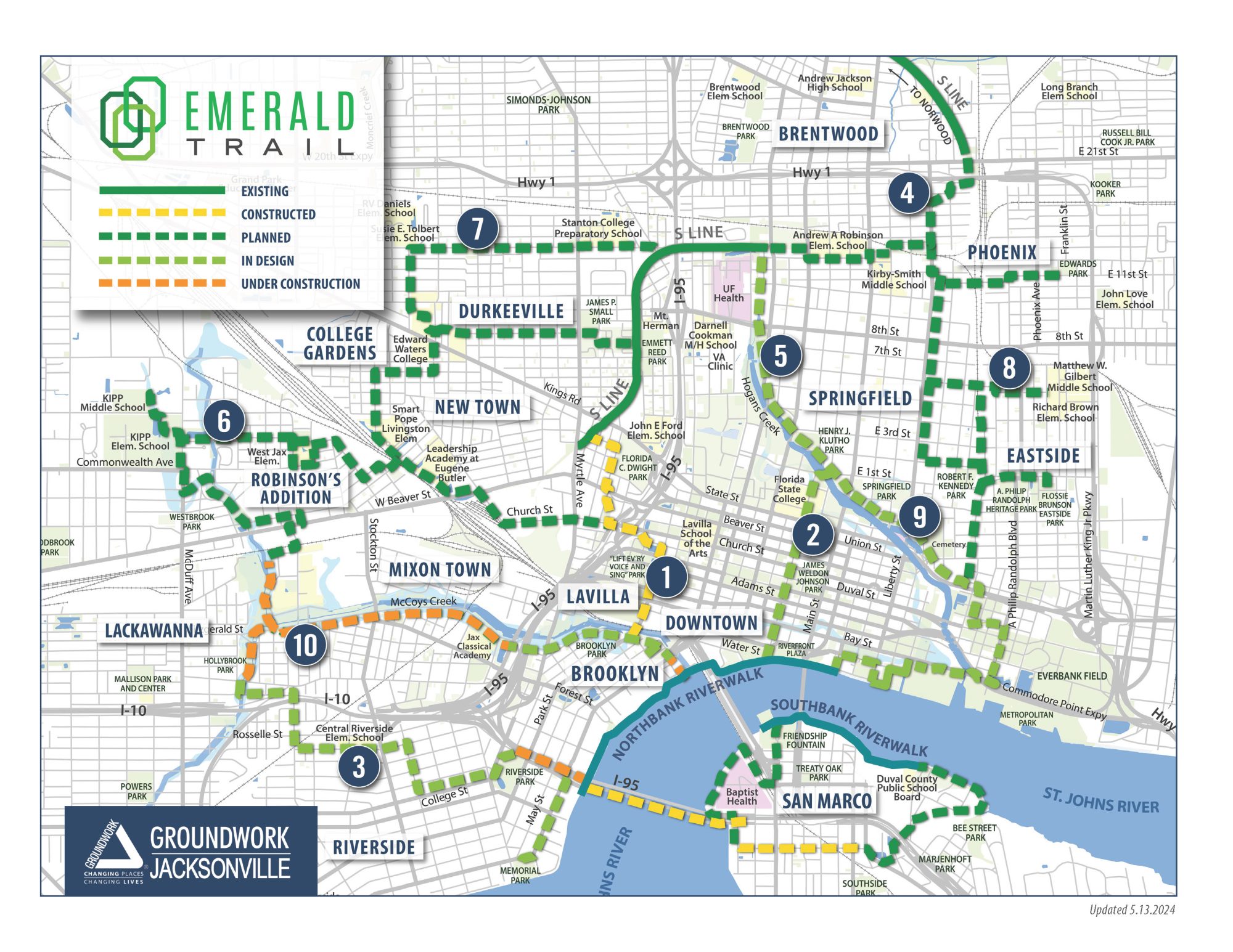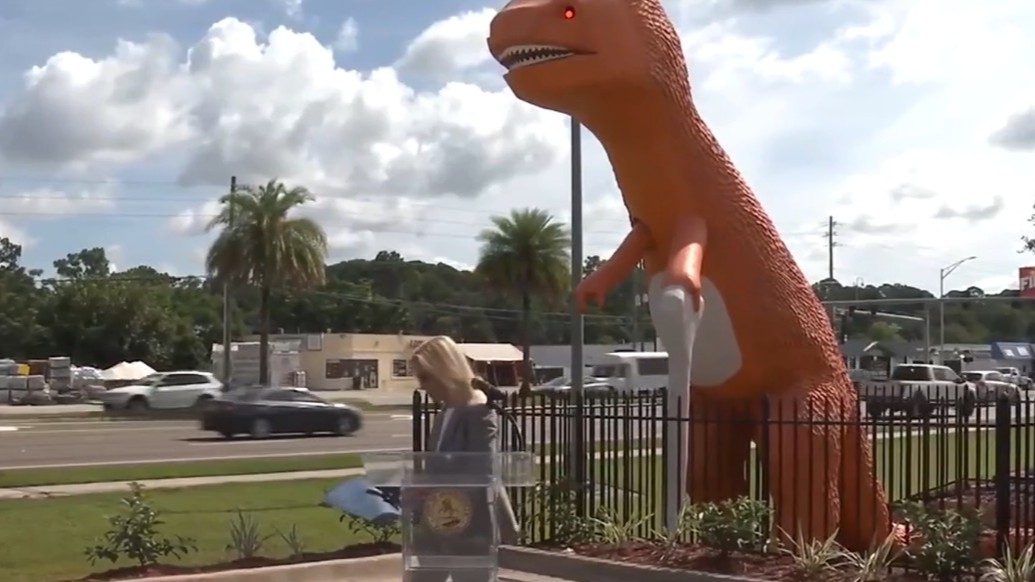Jacksonville-area officials say they’re refocusing their messaging around the Emerald Trail to one promoting economic development, as they attempt to recover from the loss of $147 million in federal grant funding just stripped from the project in President Donald Trump’s “One Big Beautiful Bill.”
Speaking on WJCT News 89.9’s First Coast Connect Tuesday, Mayor Donna Deegan said federal officials informed the city, under the new law, all grants previously issued under the Biden Administration’s Neighborhoods Access and Equity Grant Program were “summarily dismissed.”
The $147 million grant awarded in March 2024 to complete the 30-mile urban trail loop was the largest grant received in the city’s history. Deegan said the canceled grant would have allowed the project to be completed years ahead of its original schedule.
“But we are told that given that this administration is saying that its priorities are economic development, that we can reapply under an economic development grant and perhaps get some of that money back,” Deegan said. “I don’t know that we would ever get $147 million again. I hope so.”
Deegan noted that Northeast Florida Republican U.S. Reps. Aaron Bean and John Rutherford worked with city officials to help secure the now-rescinded federal grant, issued through the Department of Transportation.
“We made such a great case. I’m disappointed that the Trump Administration, so far, hasn’t seen the value in that, but I do have hope that if we can reapply under an economic development grant, we can really show them why this is such a good thing for Jacksonville,” Deegan said.
Bean and Rutherford both voted for Trump’s tax and spend bill last week.
Jacksonville City Council member Matt Carlucci – a proponent of the trail project – tells Jacksonville Today he spoke with Rutherford on Tuesday and reaffirmed his commitment to the project and wants to find other federal funding sources for the project in “smaller tranches.”
In a statement earlier Tuesday, the at-large council member called the grant cancellation “hugely disappointing and shameful.”
The Emerald Trail is a joint venture between coordinating nonprofit Groundwork Jacksonville, the Jacksonville Transportation Authority and the city.
The network of trails, greenways and parks, an idea that’s decades in the making, started to become a reality in 2019, when Groundwork raised private dollars to develop the implementation plan for the project. It got a steady revenue source in 2021, when city council approved $132 million from the extension of Duval County’s local option gas tax.
The trail network will link 14 historic neighborhoods in and adjacent to the city’s urban core with Downtown, Hogan’s Creek, McCoys Creek and the St. Johns River.
“It is about bringing people together across long-standing divides. I still believe it’s a vision worth believing in and fighting for,” Carlucci said.
Kay Ehas, CEO of Groundwork Jacksonville, says the focus on equity in the initial grant application gave project organizers concerns about the permanency of the funding, given the Trump Administration’s stance against diversity, equity and inclusion programs.
Ehas says Groundwork and JTA are moving forward with the gas tax and private philanthropic funds to finalize the design of the trail’s Segment 3 and will issue a request for proposals at the end of July for a design firm.
“Our intent is to move forward with design and construction on segments 3 and 4 to keep those on schedule, and while that’s happening, look for other sources of revenue for the final three (segments),” she says.
Groundwork is hoping the city will consider adding money for the project in future capital budgets to help fill the gap, Ehas said. And segments four and six are part of the Florida Sun Trail, which she said could qualify the project for state funding.
In addition to design and construction cost,s the grant would have also given Groundwork $3.5 million for staff and community engagement.
“That’s a major hit just to our organization and the work we do,” she says.
Ehas said Groundwork will now need to prioritize raising money for an economic impact study to show the trail’s benefit in addition to continuing work on the trail itself.
Several private development projects under construction or recently completed Downtown have touted the Emerald Trail as a future amenity for their residential tenants and a draw for retail and restaurants. For one, the trail is designed to run through tunnels underneath the newly opened renovated Union Terminal Warehouse apartment and retail building on the border of Downtown and Eastside.
The Hogan Street Cycle Track, part of the trail network, will run in front of a mixed-use residential and retail development completed in 2023 by JWB Real Estate Capital on Church and Hogan streets.
“From looking at the impact of other trails, it’s a major economic driver. I think that is what will also appeal to the feds at this point,” Ehas said. “… Momentum is so important. People have to understand that we are totally committed to getting the project done and we will figure out how to get it done.”







